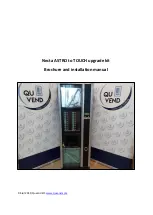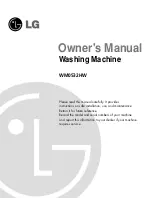
Problem Resolution 5Ć27
Table 5-2. HP FAX-700 and FAX-750 Service Parameters (continued)
Service
Parameter
Number
Display
Indication
Parameter
Description
Settings
Current
Setting
Standard
Setting
68
DOC JAM
LENGTH
This is the length of doc-
ument being scanned by
the scanner that will
cause the machine to in-
dicate a document jam
01: 0.8 M*
02: 2.0 M
03: 8.0 M
04: no limit
1
1
69
DOC MISFEED
Time elapse to detection
of misfeed
0...15 s
10
10
70
NOT USED
71
NOT USED
72
NOT USED
73
NOT USED
74
NOT USED
75
COPY COUNT
Running count of copies
n (count)
none
76
XMT COUNT
Running count of trans-
missions
n (count)
none
77
RCV COUNT
Running count of recep-
tions
n (count)
none
Response to Incoming Document With Errors on the HP FAX-700 and FAX-750
The following tables describe how the HP FAX-700 and FAX-750 determine how to respond to the transmitter when a
document is received with errors. These tables apply only if the transmitter does not have or is not using ECM (Error
Correction Mode).
The signals listed in the tables and their interpretation are as follows:
D
MCF (Message Confirmation) – document received with good quality. Continue with next page
D
RTP (PIP if during voice request) – document received with marginal quality. Train before sending
next page. (RTP – retrain positive)
D
RTN (Retrain Negative) – document received with unacceptable quality. Train at slower speed.
D
DCN (Disconnect) – Too many errors. Disconnect and send signal if the error condition is detected
after complete page is received
The following Line Error Table gives the criterion used by the fax machine to determine which signal to return when
it detects a given number of errors on a page being received, and service parameter 46 is set to LINES.
For example, if service parameter 47 is set to 3 and a page is received with 254 lines in error, then the machine responds
with the RTP signal.
















































